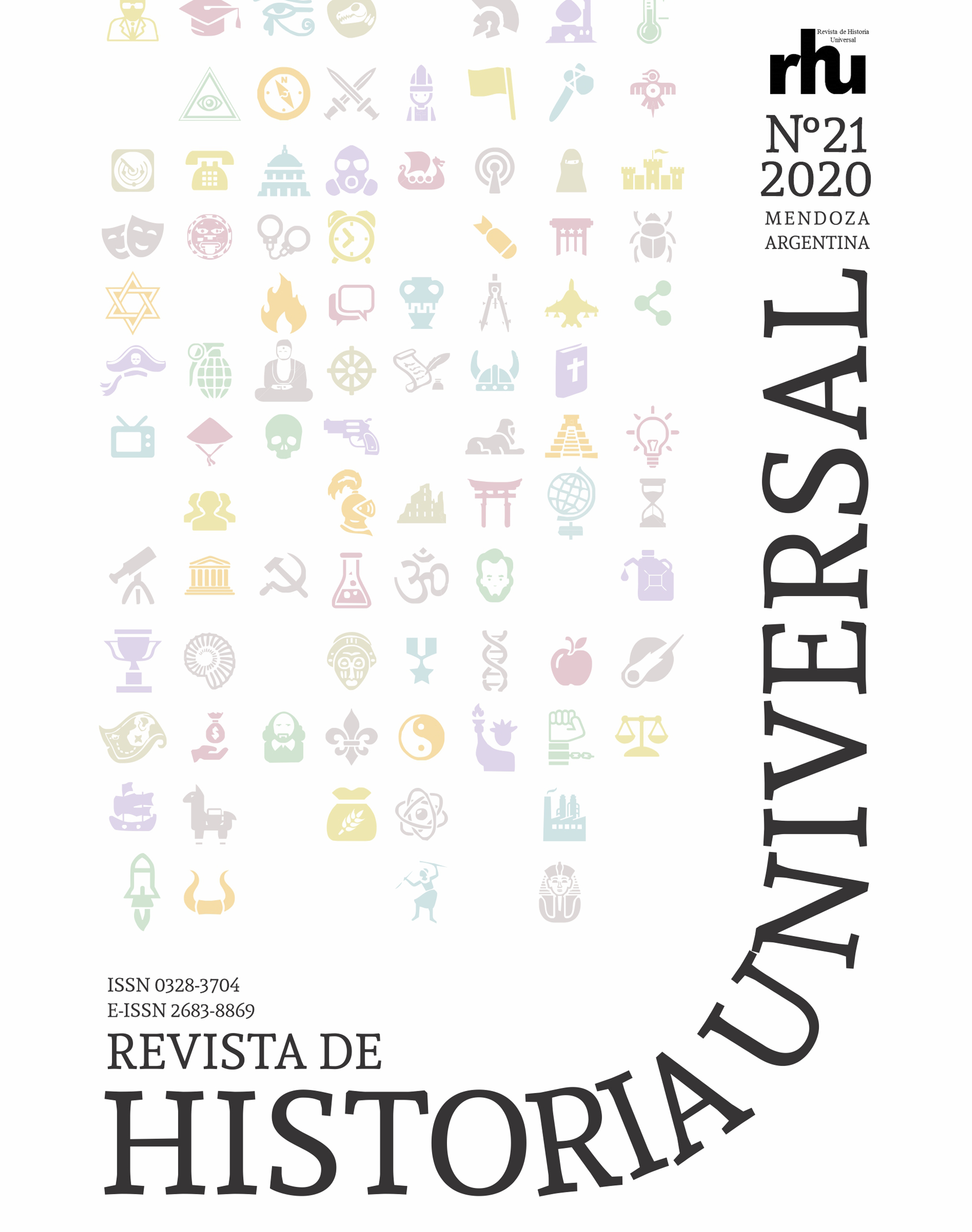Da Revolta à Reforma: Quando a Revolta de César se Torna a Reforma da República Romana (Século I a.C.)
From Rebellion to Reform: When Caesar’s Rebellion Became the Reform of the Republic (First Century B.C.)
Keywords:
Roman Republic, Julius Caesar, Classical studies, Bellum CivileAbstract
When, in 49 B.C., Caesar crossed the Rubicon River, frontier between Gaul to Italy, and began the Civil War against his rival Pompey and the Roman Senate, the moment was marked by rebellion, rebellion to conquest his personal protection, because if Caesar disbanded his army and went back to Rome he could be charged as a common citizen, and rebellion as a means to protect his dignitasachieved through his devotion to the Republic, his works when consul of Rome in 59 B.C. and his victories in Gaul. However, from 48 B.C., when Caesar was elected consul of the Republic for the second time, his actions switched from the doings of a rebellious man to the actions of a sort of reform in the system of the Republic, since Caesar occupied the most important magistracy in roman politics. From this use of the concept of Republic, that serves as a way to justify Caesar’s actions, the present article intents to analyze the concept of res publica in the caesarian text Bellum Civile. To accomplish this task, the methodology used was an extensive analyzes of the usage of the concept in the Bellum Civile text, aiming to identify the ways in which Caesar uses the concept in his commentarii. Jointly, an extensive bibliography was used, seeking for elements that can assist the comprehension of the meaning of the concept in the caesarian text. The first achievement was precisely the identification of two distinct moments in Caesars’s life as a general in 49 B.C.: from a rebellious general against the Republic’s political system, since Caesar would loose his legions and his political predominance conquered by his military victories, the roman general became the reformer of the Roman Republic, specially because, from this moment on, Caesar was invested with legality to make such a reform. The second result achieved concerns the sheer concept of res publica applied in the text; I identify that Caesar uses this concept in a variety of ways, elaborating the elements that compose the res publica: citizenship (civitas), laws, civil liberty (libertas), common interests, institutions and territories. When Caesar states at first that he is rebelling against the Senate and Pompey, and, in a second moment, of reform of the system of the Republic, Caesar is stating that his intention is the protection of the elements that compose the res publica. Lastly, the present article marks the first development of my Doctorate research and the first attempt to establish my very own definition of the concept of res publica.
References
Ferreira de Campos, Natália (2012). Amizades romanas: considerações acerca dos discursos sobre a amicitia. 60 f. Dissertação (mestrado) - Universidade Estadual de Campinas, Instituto de Filosofia e Ciências Humanas, Campinas, SP. Disponível em: <http://www.repositorio.unicamp.br/handle/REPOSIP/279190>. Acesso em: 3 ago. 2019.
Freeman, Philip (2008). Julius Caesar. New York: Simon and Schuster.
Gelzer, M. (1969) The Roman Nobility. Translated with an Introduction by Robin Seager. Oxford: Basil Blackwell.
Goldsworthy, Adrien (2006). Caesar: Life of a Colossus. New Haven: Yale University Press.
Grillo, Luca (2012). The Art of Caesar’s Bellum Civile: Literature, Ideology and Community. Cambridge: Cambridge University Press.
Hammond, Carolyn (1996). Introduction and Notes. In: Caesar, Julius The Gallic War (pp. XI-XLIX). Oxford: Oxford World’s Classics.
Harris, W. (2006) War and Imperialism in Republican Rome: 327-70 a.C. Oxford: Clarendon Press.
Jehne, M.& Pina Polo, F. (2015). Foreign Clientelae in the Roman Empire: A Reconsideration (Historia Einzelschriften 238). Stuttgart: Franz Steiner Verlag.
Lintott, A (2008). Political History, 146-95 B.C. In J. A. Cook (Ed.) The Cambridge Ancient History: The Last Age of the Roman Republic, 146-43 B.C. (pp. 40-104). London: Cambridge University Press.
Lintott, A. (1992). Judicial Reform and Land Reform in the Roman Republic: A New Edition.Cambridge: Cambridge University Press.
Matyszak, Philip (2013). Os Inimigos de Roma: De Aníbal a AtÌila, o Huno. São Paulo: Manole.
Medeiros Costa, N. (2018). (De) Bellum Catilinae: a guerra em Salústio (63 A.C.) (Dissertação Digital). Retirado de http://hdl.handle.net/1884/55371. Acesso em: 29 de julho de 2019.
Mendonça, Antônio da Silveira (1999). Tradução, Introdução e Notas. In Caio Júlio César.
De Bellum Civile (pp. 13-35). São Paulo: Estação Liberdade,
Mitchell (1971). Cicero and the Senatus ‘’consultum ultimum’’. Historia: Zeitschrift für Alte Geschichte, 20(1), 47-61.
Muñiz Coello, J. (2004). El Proceso de Gaba, las Quaestiones y la Justicia Ordinaria (Roma, siglos II/I a.C.). L’antiqueté Classique, 73, 109-126.
Políbio (1979). The Histories. Vol.3, Books 5-8, Livro VI. Translated by W.R. Paton. London: Loeb Classical Library.
Plutarco (2007). César. Tradução e Notas de Antônio da Silveira Mendonça. São Paulo: Estação da Liberdade.
Plutarch (1959). Plutarch’s Lives: Agis and Cleomenes. Tiberius and Caius Gracchus.
Philopoemen and Flaminius, V.X. Cambridge, MA: Loeb Classical Library.
Ridley, R.T. (1986). The Genesis of a Turning-Point: Gelzer’s ‘’Nobilität'. Historia: Zeitschrift für Alte Geschichte, 35(4), 474-502.
Seager, Robin (2008). Sulla. In: A. Cook; A. Lintott & E. Rawson (Eds.) The Cambridge Ancient History. Vol. IX: The Last Age of the Roman Republic, 146-43 B.C. (pp. 165-207). Cambridge: Cambridge Ancient History.
Silva, Paulo Roberto de Souza (2006). A Figura de Júlio César, Autor e Personagem, nos Commentarii de Bello Gallico. Mestrado em Letras Clássicas.Universidade Federal do Rio de Janeiro, Rio de Janeiro.
Souza, Dominique M.G (2006). Principado Romano e Corrupção Política: os Processos De Repetundae nas Epístulas de Plínio, o Jovem. Romanitas–Revista de Estudos Grecolatinos, 7, 88-103.
Scullard, H.H (2007). A History of the Roman World: 753 to 146 B.C. London: Routledge Classics.
Syme, Ronald (1939). Roman Revolution. Oxford: Oxford at the Claredon Press.
Taylor, Lily Ross (1992). Party Politics in the Age of Caesar. Berkley, CA: University of Calfornia Press.









